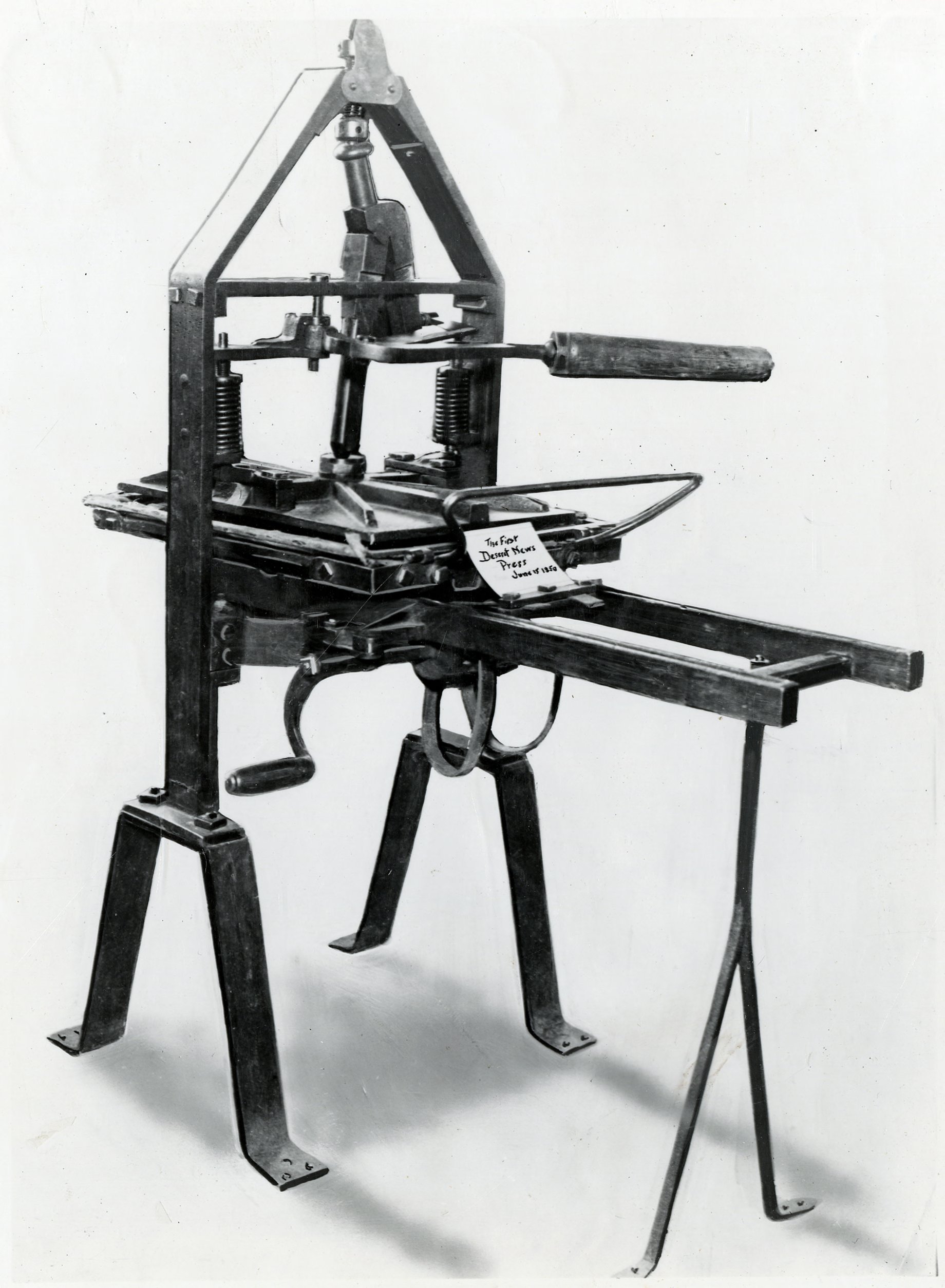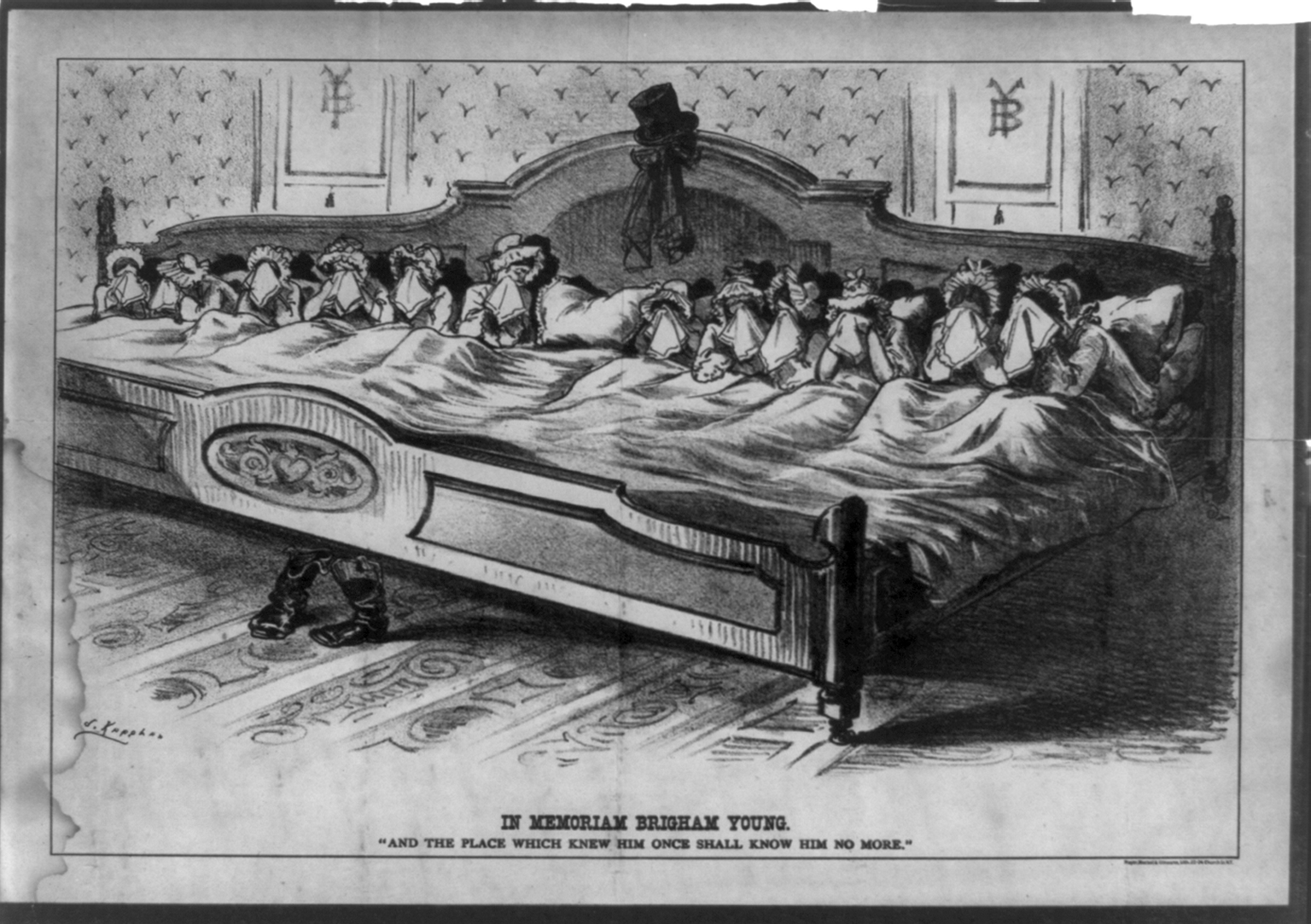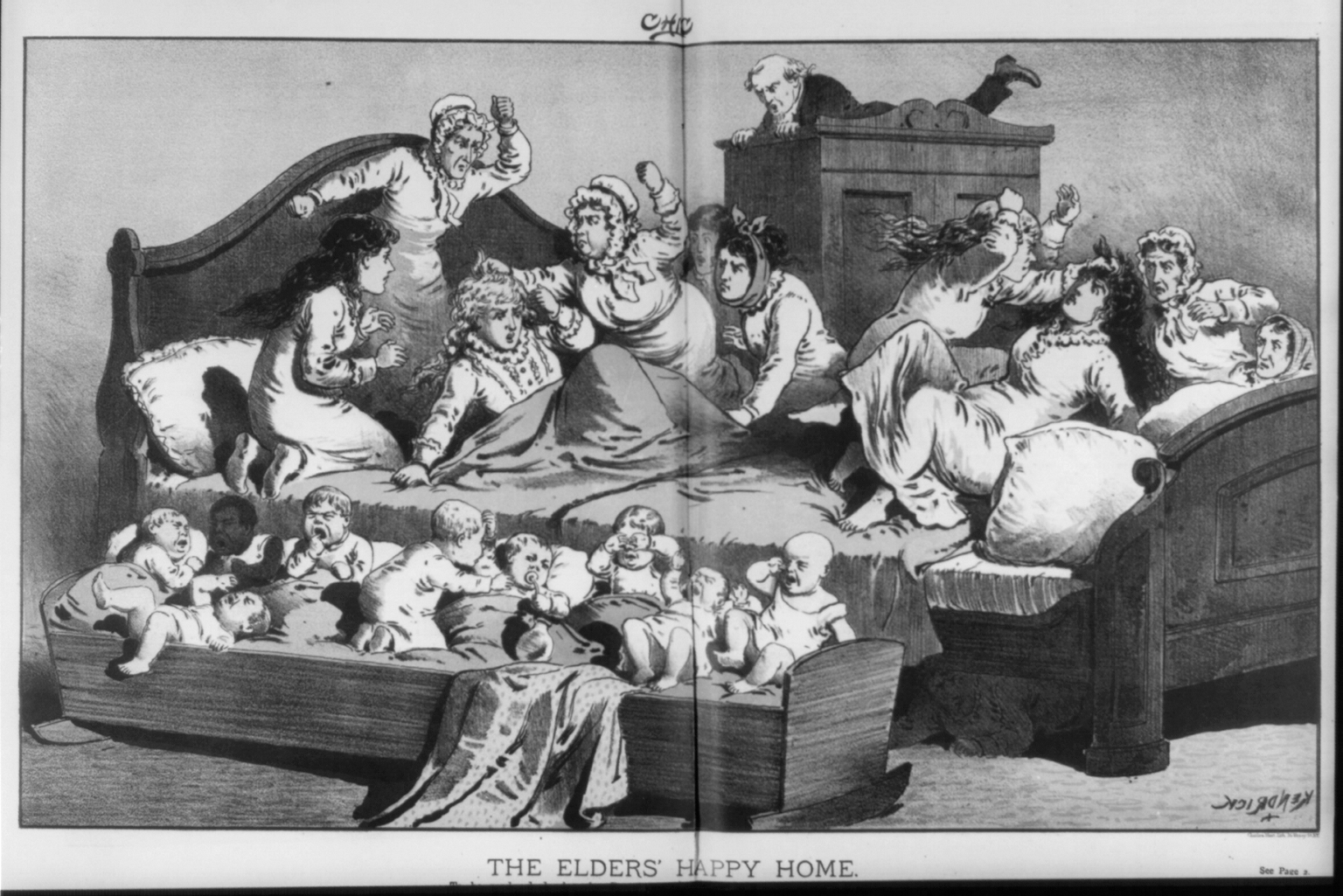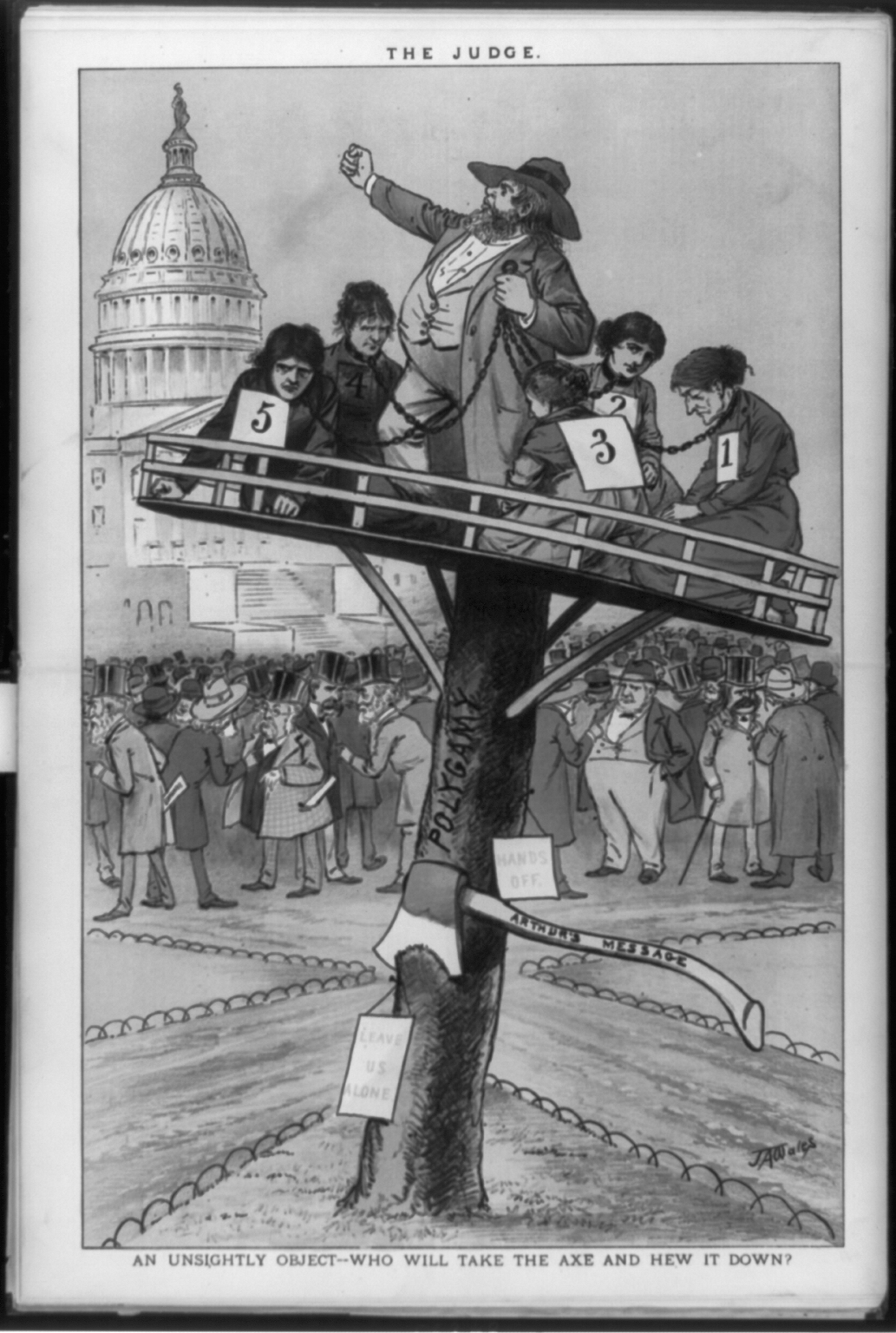"The Broad Ax" covered Statehood Day. Credit: Courtesy of the Library of Congress.
The Broad Ax
A Unique Voice in the Utah Press
From a 21st-century perspective, the lives of late 19th century Utahns may appear insular and isolated. The technology of the time did not allow for today’s level of rapid communication, and even with the country’s elaborate railroad network, travel to other states was limited. Despite these differences, Utahns in the 1890s were surprisingly in touch with the news of the world. Newspapers were popular and covered stories ranging from local to international news.

Utah and the Press
Voices in the Press
In the late 19th century, the press served an important function in Utah. On the local level, it informed communities of day-to-day happenings, politics, and scandals. On the national level, it generalized Utahns through unfavorable characterizations.
For decades, the national press toted negative portrayals of the polygamous lifestyles that were embraced by some members of The Church of Jesus Christ of Latter-day Saints. Since many Americans knew few details about the territory or the church, these caricatures came to represent both in their minds. Utah loomed in infamy, and time after time, its reputation blocked its statehood. Adjusting this negative perception was key to Utah’s eventual achievement of statehood.
Within the territory, a central division between Latter-day Saint and non-Latter-day Saint publications split the press. Each group published opinions and stories that aligned with their political beliefs, which often fell along religious lines. Within these divisions were smaller groups of voices. Organizations like The Women’s Press Club united Latter-day Saint women who worked in the industry, newspapers catered to different racial and cultural groups, and everyday people contributed to small publications. For instance, teenage Latter-day Saints produced “manuscript newspapers” that were copied tediously by hand and featured essays and poems written under pen names.

One of the first printing presses for the "Deseret News" in 1850.
Credit: Courtesy of the Utah State Historical Society
Utah Women's Press Club luncheon group, December 6, 1928, 37 years after it was organized in 1891. Membership was open to any woman who wrote for a credible journal, newspaper or other publication. Credit: Courtesy of the Utah State Historical Society
African American Press in Utah
At the time of statehood, the Black population in Utah numbered several hundred, but this relatively small community managed to support several newspapers that were produced by and for a Black audience including the “Utah Plain Dealer,” the “Democratic Headlight,” the “Tri-City Oracle” and “The Broad Ax.” Rivalries over the limited audience drove division between the papers, but many of their staff members were part of the same professional organization, the Western Negro Press Association.

The Broad Ax
"Hew to the Line"
On the eve of statehood on August 31, 1895, the first issue of “The Broad Ax” was published in Salt Lake City. Bold and opinionated, the newspaper was one-of-a-kind, just like Julius Taylor, its founder, editor and writer.
Julius Taylor embraced the free silver movement and presidential candidate William Jennings Bryan, who is pictured here. Credit: Courtesy of the Cornell University Library.
From its first issue, “The Broad Ax” was opinionated, especially in terms of politics. Using a combination of conventional articles and paragraph-long pieces known as “chips,” it supported several strong beliefs throughout its circulation. It promoted the Democractic Party and its “free silver” movement, an economic relief option to counteract the effects of the Panic of 1893. To this end, the paper strongly backed the 1896 presidential candidate William Jennings Bryan. “The Broad Ax” advocated for racial tolerance and equality, and it encouraged voters to consider rational reasons over religious and social loyalties when choosing parties.
Souvenir postcard of the Salt Lake Temple. The Broad Ax often came into conflict with the church.
Credit: Courtesy of the Utah State Historical Society
Through his pieces in “The Broad Ax,” Julius Taylor often conflicted with The Church of Jesus Christ of Latter-day Saints. He held opinions that countered the church’s stances on top issues, and he opposed the strong influence the church leadership held over Utah’s economics and politics. Taylor even spoke out against statehood, which was a central cause for Latter-day Saint politicians. He was an atheist who promoted religious tolerance, and he pushed for Black representation and rights during a time when Black men were prohibited against being ordained into the Latter-day Saint priesthood. Despite his efforts, it would take another 80 years before the growing Black population had representation in the Utah legislature.
A cyanometer, like the artistic piece pictured here, is used to measure the perceived blueness of the sky. Newspapers like "The Broad Ax" can be used to gauge different perceptions of Utah in the 1890s. Credit: “Great Basin Cyanometer” by Virginia Catherall. Courtesy of the Utah Division of Arts & Museums. All Rights Reserved.
"The Broad Ax" leaves Utah
Although it is not clear why exactly the Taylors chose to leave Utah, there are some clues as to why “The Broad Ax” ultimately closed its doors in Salt Lake City. Maintaining a paying readership was difficult. The majority of Utah’s Black residents were the soldiers of the Ninth Cavalry stationed at Fort Duchesne, and Taylor would have experienced strong competition for their readership. Beyond the small Black community, he struggled to collect consistent dues from his readers. He even printed complaints in the paper about customers not keeping up with their subscription payments. Growing conflict with The Church of Jesus Christ of Latter-day Saints may have also contributed to the closure. Whatever the cause, “The Broad Ax” shut down production in Utah in 1899, and the Taylors returned to Chicago. In Illinois, Julius restarted the paper with one small change: “Mormons” were removed from its list of celebrated people.
The Broad Ax will promulgate and at all times uphold the true principles of Democracy, but farmers, Catholics, Protestants, Knights of Labor, Infidels, Mormons, Republicans, Priests, or anyone else can have their say so long as their language is proper and responsibility is fixed. The Broad Ax is a newspaper whose platform is broad enough for all.
Legacy of "The Broad Ax"
Publications following the spirit of “The Broad Ax” continue to share the voices of Utahns to this day. Beyond just print, these can now be found in new forms online and on television.

 A 1881 satirical representation of polygmous wives arguing with a hiding husband and crying children look on.
A 1881 satirical representation of polygmous wives arguing with a hiding husband and crying children look on.